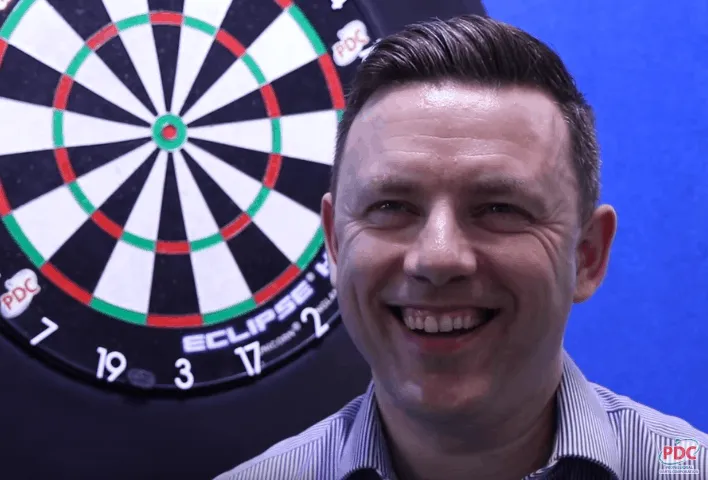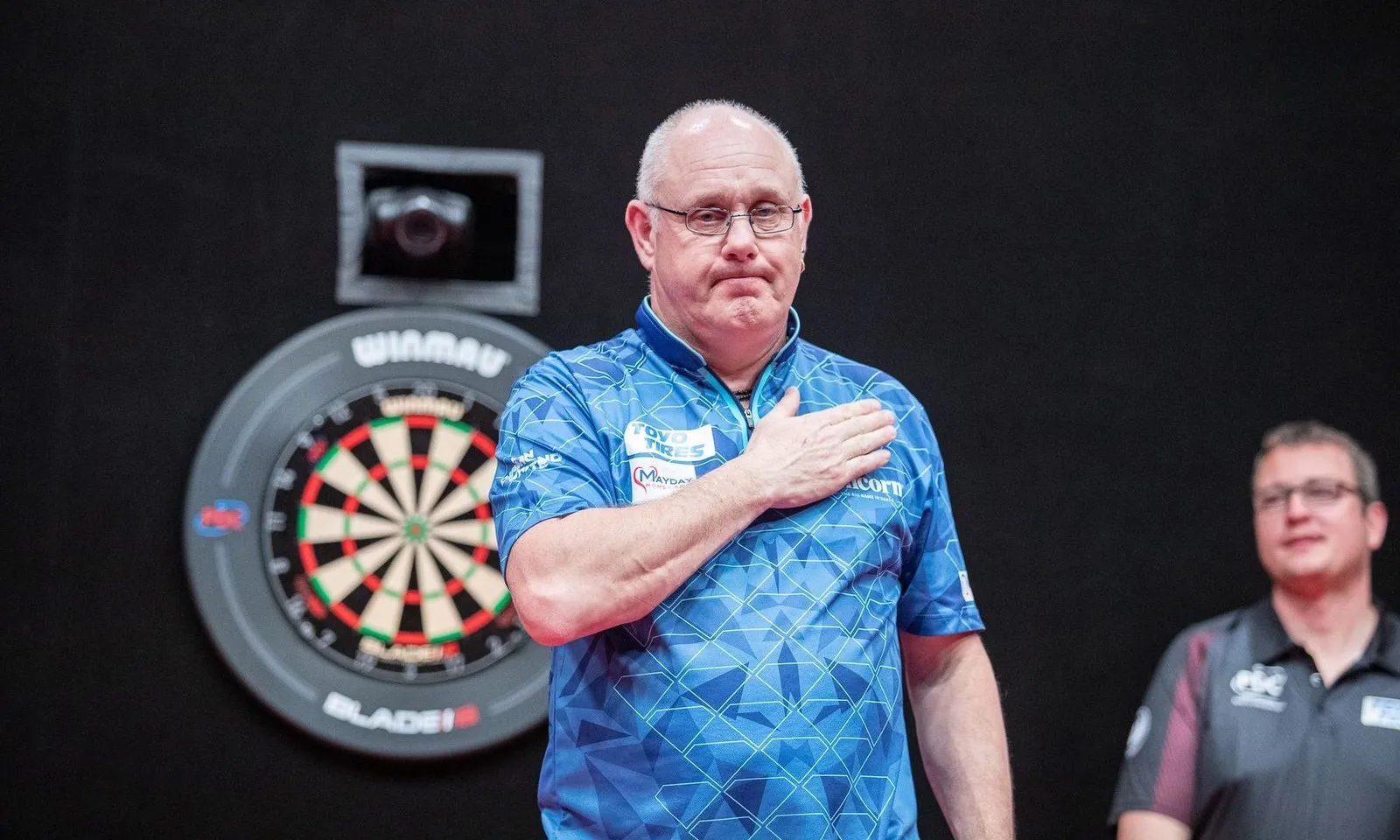Nicholson sees a clear trend: "New worldwide talents are here, more are coming and that makes for exciting pro tour events"
PDCFriday, 12 May 2023 at 13:00

The worldwide growth seen by the sport of darts in recent years means that the top echelons of the game are now more multicultural than ever before, something Paul Nicholson believes is a massive benefit.
"Cast your mind back to the early days of the PDC. Do you remember when it was dominated by English players and how a draw against someone from Belgium, Germany, North America and Australia would be thought of as a bye?" Writes 'the Asset' in his column for the official PDC website. "Looking back at it now, I feel quite proud of how the standard of darts has come on globally, with more and more talents recognised, with life-changing consequences."
Read also
Nicholson, a Geordie-born World Cup of Darts finalist with Australia knows all about the darting qualities of the 'lesser known' nations. "Now that we have things like World Series, affiliate tours and the use of improved global broadcasting, we have been reaching out over the last 20 years, especially since 2010 to find the global stars of the future," he explains.
"Are we there with it yet? I do not think we are, but our reach as a sport has been widened significantly and we should be proud of what 2023 is proving to us so far, and we aren’t even at the half way point yet," he continues. "The season to date gives us Players Championship winners and runners-up from nine different countries after ten events. The European Tour gives us winners and runners up from four different countries after seven events."
Read also
So what of the future development? "With Latin America and the Caribbean next on the way for the CDC and the Asian Tour moving at a fast pace, it doesn’t take a genius to figure out where we may be in another 22 years," Nicholson poses. "Consider the possibilities of Tour card holders from Jamaica, Mexico and Costa Rica. Long may this growth and prosperity continue for all who want to play, wherever they are from."
"New worldwide talents are here, more are coming and that makes for exciting pro tour events, better world cups and more widespread matches at premier events," he concludes.
Read also
claps 1visitors 1
Just in
Popular news
Latest comments
- what a load of crocmedinabello19-02-2026
- So,it's a rubbish league,waste of time. Just put 8000 people in a building every Thursday,get them all drunk,and wonder why it's a complete joke. And forget every other player apart from 8. It's a ridiculous,inane,and needless so called competition.rick6718-02-2026
- Sorry,I've never been a professional darts player,but obviously from your comment,you have. So, going to your reply, you're blaming the management,not the player? So in that respect,he should get a different manager? That's basically all your comment is saying. Don't let him do money makers,which Barney said is easy money, instead of tournaments? Shake hands instead of trophies? Well I guess the manager knows best,as he has a big cut!rick6716-02-2026
- Sorry Mr rick67, erm what punditry credentials do you have to comment on a pundit? There's a reason why many top professionals have management teams. They know how to manage schedules etc so the players can just play. And how is Edgar wrong? Last year MVG failed to qualify by missing too many tournaments and underperforming. He's repeating the error this year so Edgar is right In calling this out.BandB15-02-2026
- Just get of Mardle,I didn't pay to watch him,and I don't want him for free! Let's see,how many world champions,either code,did you win? None! Now mason does it more as a player who was a floor player than you were putting pineapple on your shirt. Mardle,just go,you over inflated ego may follow. Tell you what,get on the seniors tour,and show everyone how good you weren'trick6715-02-2026
- Sorry Mr Edgar,erm what have you actually won to comment? Mvg has had his issues,but you have won a grand total of what? I make that nothing. So how can your comment be justified? Let him do what he likes,you do what you like, and we'll see what you win nextrick6715-02-2026
- Seems to be having a moan for no reason and using “Do-Gooder” as an insult makes no sense. It literally means someone who does good things!Wonker12-02-2026
- Mickey Vs mensur for the world champion? It's starting tomorrow,finishes in January!!rick6711-02-2026
- Oh well that's it then. Both these goofs will expect and demand premier league darts next year after this.richieburnettrocks10-02-2026
- Sincere apologies to Richie, I forgot yesterday, slightly belated but Happy Birthday to the great man. Certainly looking good for 59richieburnettrocks08-02-2026
Loading









